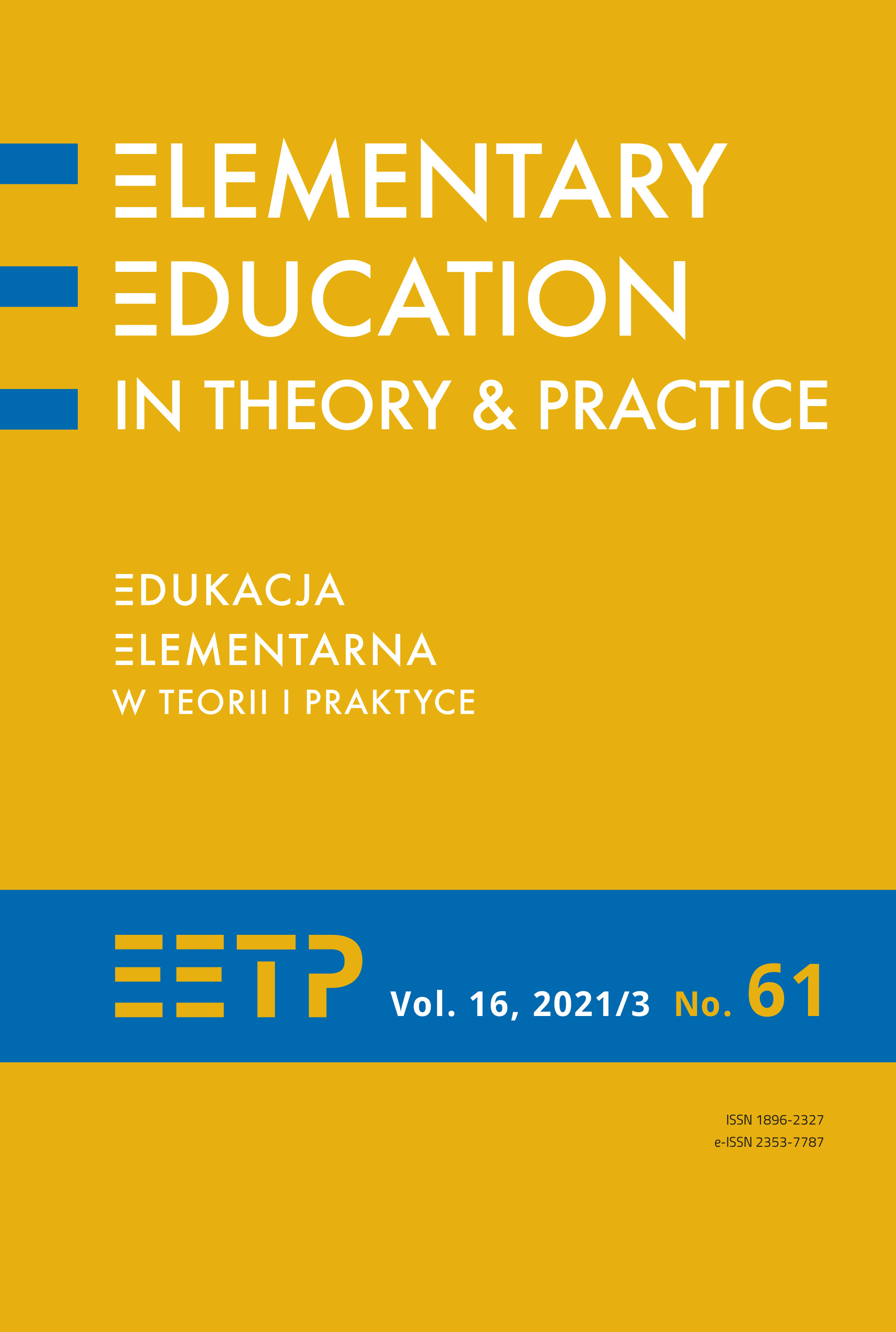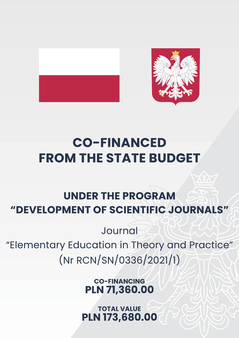Students of Teacher Training Programs and Their Views on STEM: A Focus Interview
Abstract
This paper presents the outcomes of a pilot study conducted with a group of students pursuing teacher training programs as part of the international research project called “Kitchen Lab for Kids” delivered under the “Erasmus+; Key Action 2” scheme. The aim of the research was to find out about students’ opinions on STEM education, including the determination of the level of their knowledge about this trend. In this context, particular attention was paid to issues related to the goals of STEM education, problems and challenges that they may generate, as well as the needs (organizational conditions) necessary to implement this type of activity. The respondents also had the opportunity to present their own experiences in organizing and conducting STEM classes. The research was carried out with the use of the qualitative methods, where the basic research method was focus interview. The research group consisted of 8 students of teaching faculties, mainly pre-school and early school education. The selection of research units was purposeful. The conducted qualitative analysis of the material collected during the focus interview showed that STEM education is still a novelty among students of teaching faculties. Future teachers have little experience in the implementation of activities taking into account the STEM model, but it should be expected that the coming years will result in a number of changes and activities in this area.
References
Early Childhood STEM Working Group (2017). Early STEM Matters: Providing High-Quality STEM Experiences for All Young Learners: A Policy Report by the Early Childhood STEM Working Group, http://d3lwefg3pyezlb.cloudfront.net/docs/Early_STEM_Matters_FINAL.pdf (accessed: 01.12.2019).
Gonzalez H.B., Kuenzi J.J. (2012). Science, Technology, Engineering, and Mathematics (STEM) Education: A Primer, http://www.stemedcoalition.org/wp-content/uploads/2010/05/STEM-Education-Primer.pdf (accessed: 01.12.2019).
Hoffman R. (1959). Homogeneity of member personality and its effect on group problem-solving, “Journal of Abnormal and Social Psychology”, vol. 58, no. 1, pp. 27–32.
Hoffman R., Maier N.R.F. (1961). Quality and acceptance of problem solutions by members of homogeneous and heterogenous groups, „Journal of Abnormal and Social Psychology”, vol. 62, no. 2, pp. 401–407.
Krueger R.A., Casey M.A. (2000). Focus groups: A practical guide for applied research, Thousand Oaks (CA): Sage Publications.
Lisek-Michalska J. (2013). Badania fokusowe. Problemy metodologiczne i etyczne, Łódź: Wydawnictwo Uniwersytetu Łódzkiego.
Plebańska M., Trojańska K. (2018). Steam Lessons, Warszawa: Elitera.
STEM Sprouts. Science, Technology, Engineering & Maths: Teaching Guide. (2013), https://www.bostonchildrensmuseum.org/sites/default/files/pdfs/STEMGuide.pdf (accessed: 07.12.2019).
Williams M. (2003). Making sense of social research, Thousand Oaks (CA): Sage Publications.
Copyright (c) 2021 Elementary Education in Theory and Practice

This work is licensed under a Creative Commons Attribution-NoDerivatives 4.0 International License.
- When submitting a text, the author declares that he/she is the Author of the article (hereinafter referred to as the “Work”) and:
- he/she owns the exclusive and unlimited copyright to the Work,
- is entitled to dispose of the copyright to the Work.
Declares that it does not infringe any third party copyrights or legal rights.
Declares that there is no conflict of interest.
2. At the same time, the Author grants the Ignatianum University in Cracowa royalty-free, non-exclusive and territorially unlimited licence to use the Work in the following fields of exploitation:
- recording the Work in a hard copy, as well as on a digital or magnetic medium;
- reproduction of the Work using any technique, without limitation of the number of editions or copies;
- distribution of the Work and its copies on any medium, including marketing, sale, lending, and rental;
- introduction of the Work into a computer memory;
- disseminating the Work in information networks, including in the Internet;
- public performance, exhibition, display, reproduction, broadcasting and re-broadcasting, as well as making the Work available to the public in such a way that everyone can have access to it at a time and place of their own choosing;
- within the scope of dependent rights to the Work, including in particular the right to make necessary changes to the Work resulting from editorial and methodical development, as well as to translate the Work into foreign languages;
The licence is granted from the moment of the transfer of the Work to the Ignatianum University in Cracow. The Ignatianum University in Cracow is entitled to grant further sub-licences to the Work within the scope of the right granted. The licence is time-limited and it is granted for a period of 15 years, starting from the date of its granting.
Authors are permitted and encouraged to publish their text online (e.g. in their institution’s repository or on the institution’s website) before or during the submission process as this may lead to beneficial exchanges, as well as earlier and greater citation of the published text (See The Effect of Open Access). We recommend using any of the following portals of research associations:
- ResearchGate
- SSRN
- Academia.edu
- Selected Works
- Academic Search





